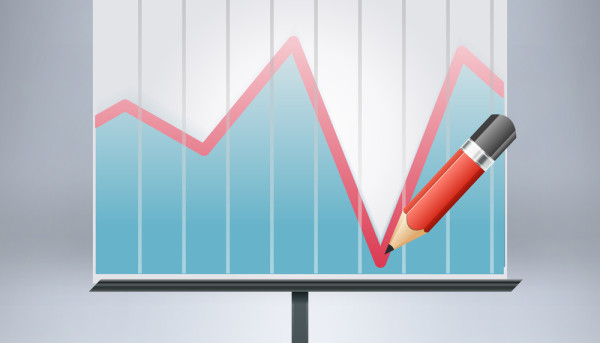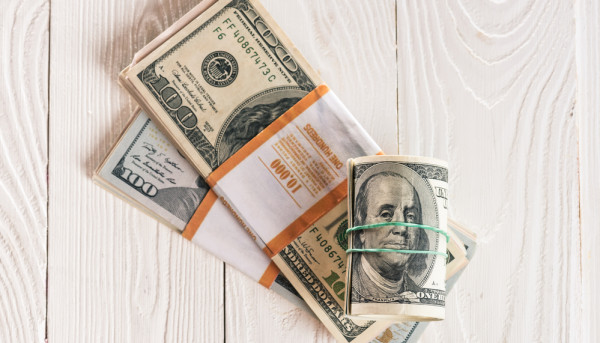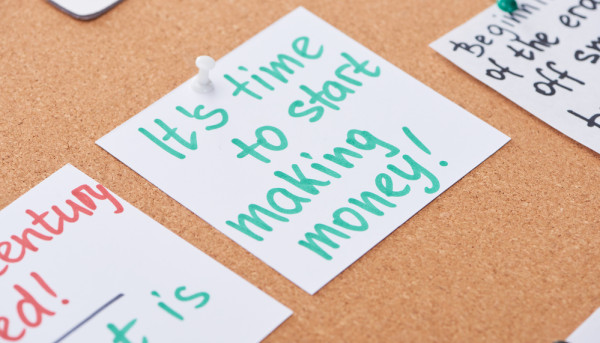How to Save Money During a Recession

During a recession, there are many ways to save money. You can avoid debt, invest in your short-term expenses, and build an emergency fund. By doing these things, you can keep your money in your bank account and avoid falling into a financial hole.
Build an emergency fund
Developing an emergency fund can help you survive a financial crisis. It can also help you keep on track with your financial goals. Whether you're dealing with an unexpected illness or a major car repair, you can use an emergency fund to keep yourself and your family afloat.
The first step in developing an emergency fund is to create a budget. This will help you to determine how much money you can set aside each month. Once you have your budget in place, you can start to take stock of your spending habits and determine where you can save money.
Next, you'll want to set a target date for your emergency fund. This could be as short as three months or as long as a year. The target date will depend on your current financial situation. You can also use a savings planning tool to calculate how long it will take for you to reach your goal.
To make saving money during a recession easier, you may want to consider setting up recurring automatic transfers to your savings account. You can do this through your bank's website or customer service line. Once you've set up a recurring transfer, you can set it up to automatically transfer money from your checking account to your savings account each month. This will make saving easier, and will also help you to stay on track with your savings goal.
You may also want to consider taking on a side hustle to help you build an emergency fund. This could mean selling unwanted items online, like eBay, Facebook Marketplace, or NextDoor. If you receive cash gifts during the year, you may also want to consider adding them to your emergency fund.
To make building an emergency fund easier, you may also want to set up an auto-debit feature on your salary account. This will automatically set aside money for your emergency fund every month. You may also want to consider setting up a high-yield savings account to earn interest on your savings. This will help your emergency fund grow faster, and it may even help you avoid taking out new debt.
It is also a good idea to pay your bills on time to avoid fees and possible eviction. It is also important to take stock of how much you are spending each month and make sure you are not spending more than you should. You may even want to look into debt consolidation to lower your monthly payments.
If you are worried about whether or not you have enough emergency funds, you may want to consider talking to a financial advisor. They can help you develop a budget, determine how much you can afford to set aside, and determine if you have enough for a short-term emergency.
Invest in short-term expenses
Investing in short-term expenses to save money during a recession can be a great idea if you are prepared to take the right approach. It is important to know that investing is not always a good idea, and that it is often best to leave your money alone until the economy recovers. However, there are also a few things you can do to make your investments more lucrative during the recession.
You can start by building an emergency fund. Having an emergency fund can help you to tide over in a recession and give you time to grow your investments when the economy recovers. You should also consider getting a financial planner to help you develop a plan for retirement. In addition, you should review your budget to determine if any expenses are unnecessary. If they are, you can redirect that money to your emergency fund or use it to pay off debt.
You can also invest in the stock market. Although stocks tend to be volatile during recessions, they also offer good long-term returns. However, you should be prepared to watch your investments decline before they recover. Buying stocks at a discount can help you to increase your returns in the future.
You should also consider investing in companies that raise their dividends. This will help you beat inflation. If you do not have a lot of cash to invest, consider investing in high-yield online savings accounts. Alternatively, you can invest in a stock fund. Funds are less volatile than individual stocks, and they offer a good long-term return.
Another great way to invest during a recession is to focus on quality companies. These companies are often better positioned to thrive in the future than companies with poor balance sheets. By buying high-quality companies, you will give yourself the best chance to make a profit in the future.
Another way to invest during a recession is to consider investing in industries that cut costs. For example, the health care sector is considered recession-proof. This is because the health care industry will be one of the first industries to recover from a recession.
Another good way to invest in short-term expenses to save money during a recession is to consider investing in discount retail providers. This is because they offer investors the opportunity to grow quickly in the recession and double their efforts once the economy recovers.
You may feel anxious or panicked during a recession, but the best approach is to stay calm. Recessions often cause unemployment and widespread job losses. This can cause a lot of financial stress. You may be struggling to pay bills, and you may even be going into debt. By focusing on paying your bills, you can ensure that you are not making drastic changes that will exacerbate your financial situation.










